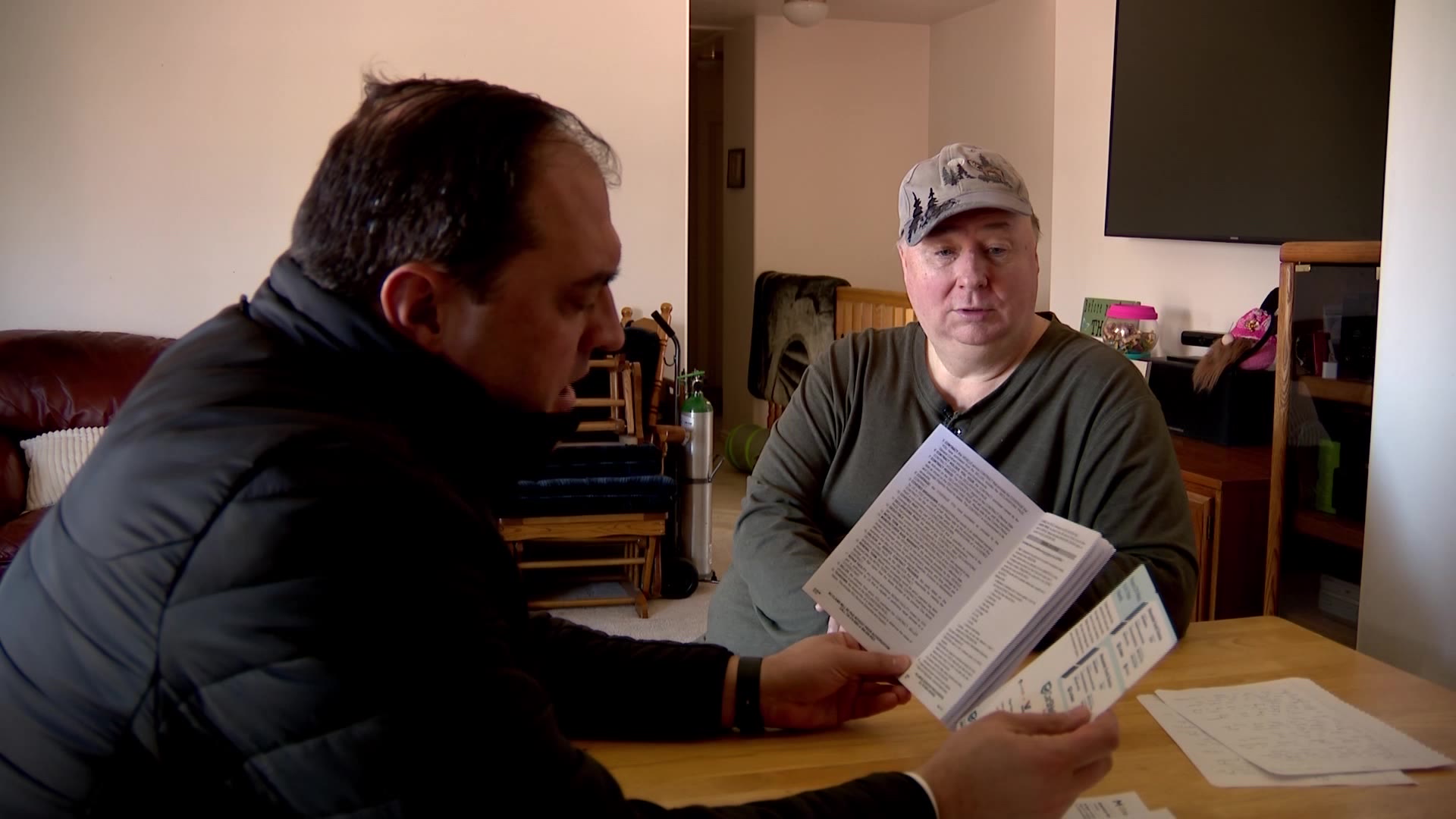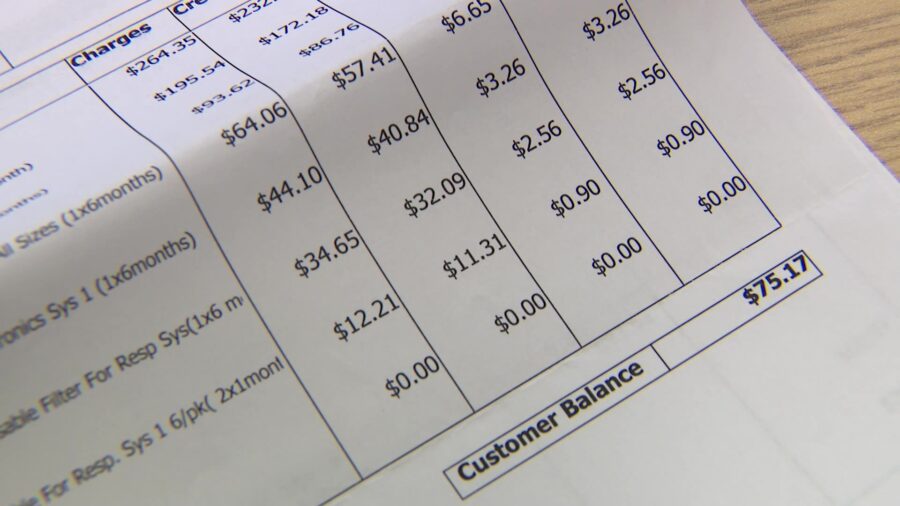Bandwidth Bottleneck: Gephardt Uncovers What’s Eating Through Your Data Plan
Jan 4, 2021, 10:10 PM | Updated: Jun 19, 2022, 10:02 pm
TAYLORSVILLE, Utah – Early in the pandemic, many home internet service providers ditched data limits to help people who suddenly found themselves working and learning remotely. Fast forward 10 months, and while many families are still home – those limits are back.
Go past a data cap and you will pay more for your internet, live with a slower internet speed, or both.
Excessive Use Warning
“I’m sure everybody that’s having to work from home is suddenly realizing you don’t have unlimited internet,” said Keira Farrimond, a KSL colleague and TV producer who has been working from home since March.
She realized her home internet has limits when her broadband provider slapped her with a warning for going over her monthly data cap.
“We’re just so used to not thinking about it,” she said. “All of a sudden, we need to think about it, otherwise it’s going to cost us a lot.”
Farrimond’s internet provider allows a one-month grace period, but once that’s used up, she’ll get charged $10 for every 50 gigabytes her family uses beyond their 1.2-terabyte monthly data cap.
Sounds like a ton of data, right?
“Me and my husband work at home full time, so we’re on our computers using the internet. My husband has to make calls all day, which he has to do through the internet. So that’s increased things,” she explained. “We have a couple kids Kindles, some Chromebooks, cellphones, we have one Echo Dot and a couple TVs.”
She also has a 3-year-old boy bouncing from one TV to the next, as he streams Power Rangers on multiple devices.
“I’m constantly following him around the house, trying to get the TVs turned off,” Farrimond said.
The usage seems fairly typical for a family of six. So how fast can all that burn through over 1.2 terabytes of data?
You Ask. KSL Investigates.
Security cameras, doorbells, thermostats, smart fridges.. Are you all of the sudden paying big bucks for more bandwidth? The sneaky data destroyers in your house & what you can do abt it. Bandwidth Bottleneck. You ask. KSL Investigates. Live & streaming at 10p. @KslMatt pic.twitter.com/O9POphpZc5
— KSL 5 TV (@KSL5TV) January 4, 2021
Measuring Data Use
We enlisted the help of our colleague and IT guru Jared Houghton to set up a device to monitor and log all the traffic going through Farrimond’s WiFi router for one week to determine exactly where her usage was going.
“Any device that’s communicating with (the router), it’ll pick up that traffic,” said Houghton about the monitoring device.
Our test revealed several bandwidth bottlenecks.
After one week of downloads, remote work, web browsing, YouTube, Netflix and other online activity, the monitor showed the lion’s share of the Farrimonds’ internet use went to video streaming (65%). Video calls took up 22%, with a caveat: We could not capture Keira’s husband’s video calls, as they went through a wired connection, not WiFi, so that piece of the pie is likely much greater.
Common Data Hogs
We took the results to Earl Foote, owner of information technology company Nexus IT Consultants.
“Certainly, right now, work from home and distance learning have a big impact on that,” Foote said about families going over their data limits.
“The amount of data we use is astronomically higher than what we used to use,” he added. A study from Leichtman Research Group found 82% of Americans subscribe to at least one streaming service while 49% have three or more.
With most other entertainment options curtailed during the pandemic, those streaming services are getting a lot of use.
But video is far from being the only data hog.
Gaming also chews through data. It’s not just while you or your kids are playing online – there are also the downloads and constant updates that come with the games.
“Those are massive downloads, gigabytes of data,” said Foote.
Many apps constantly update on our phones over our WiFi signal. And backing up our photos, videos and files to the cloud also counts against us.
All that uploading, downloading and syncing totaled 12 gigabytes for Farrimond in one week. That would add up to nearly 50 gigabytes for a month.
And there is an ever-growing list of devices that use our data, while we’re not looking.
“We have security cameras and doorbells and thermostats and smart fridges,” Foote listed. “And all those things now are communicating constantly over the internet and pulling data – you know, pulling data in and pushing data back out.”
Staying Below Your Cap
So how do you keep from busting your data cap?
Foote said start by logging into your internet account and look for a usage meter. If it only shows overall usage without breaking it down, try your router. Some newer models will allow you to see what is connected.
“You can actually look by device and you can say, ‘Hey, my kid, Johnny, his mobile phone has downloaded 10 gigs of data this month, what’s going on?’” said Foote.
Here are more simple ways to drop your data use at home:
- Get off your WiFi if your cell has unlimited data.
- Doorbell cameras and WiFi security systems are uploading video all day. You can save data by switching those devices to a lower quality, SD instead of HD.
- Lower the video stream quality when watching YouTube, Netflix or other streaming services. HD uses less than half the data of 4K.
- Consider moving your backups of family photos, videos and music to a hard drive in your house.
“A lot of us have home backups, we have a lot of media that we are trying to keep a hold of,” said Foote. “So that uses a ton of data when we’re backing up to the cloud.”
And, if your kid leaves the Power Rangers on TV, but keeps walking away: Shut off the Roku, Chromecast, Fire Stick or whatever box is connected to the TV to stop the streaming.
“There’s a bunch of data streaming that isn’t even getting used,” said Keira about her son’s habits.
Data Caps Vary
The most important piece of advice: Know your data plan.
Comcast will charge you up to $100 more for going over its 1.2 terabyte limit. Most AT&T plans have a similar policy. No fees from CenturyLink for exceeding its one terabyte limit, but they will ask you to reduce your use or switch plans.
If you’re not able to avoid hitting your provider’s data cap, see if your provider will let you upgrade your account. You might have to pay more upfront, but many services have an unlimited data tier.
Monitoring Your Own Data
Jared Houghton engineered the device we used to monitor internet traffic flowing through the Farrimond’s router, it is not commercially available. However, there are several options open to consumers.
Most internet service providers have a page on their account website that shows you how much data you’ve used in the last month. Xfinity has one, and AT&T has what it calls “myAT&T Usage.” These vary in name from ISP to ISP, but you can look for the words “data usage.” While these may not provide detailed information about what device is using how much, the data your ISP logs will be used to decide how much you’ve used.
There are software packages that can give a great visual idea of what’s on your home network and how much data it’s using. Houghton cautions these solutions are generally not super-friendly for novices to install – they do take a little know-how to get up and running. Once such software is PRTG.
As Earl Foote explained, there are routers that allow home users to monitor their internet traffic. Many of the latest models have what’s called traffic metering that allows you to monitor and measure the traffic on your home network. If your existing router doesn’t have metering, there are software packages that might be compatible with your device and allows you to see the traffic.



















